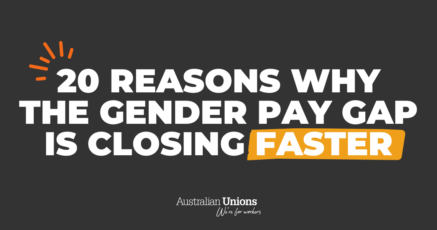Paperwork and bureaucracy should never stand in the way of people with disability accessing essential support. But cutting through this red tape is not only a structural barrier, but also a burden that has fallen mainly on women.
Around 4.4 million people in Australia have disability. Nearly 500,00 people with disability participate in the National Disability Insurance Scheme (NDIS) which provides individualised funding for disability support.
Although women make up half of Australians with disability, only around a third are NDIS participants. One of the major barriers is simply the bureaucratic work required to access support.
So how does the NDIS continue to exacerbate unfairness for people with disability?
NDIS system creates an unfair administrative burden
Researchers from the University of New South Wales saw the disparity between women with disability and women NDIS participants and were concerned the NDIS wasn’t catering properly for the diversity of people’s circumstances.
After interviewing 30 women about their experiences with the NDIS, the researchers unearthed what they call an “administrative burden” for those engaging with the NDIS.
The administrative burden is the labour involved in figuring out how to navigate the NDIS, learning how to comply with all the requirements, and dealing with the emotional toll that all this administrative work takes.
The women interviewed reported difficulties in communicating with the National Disability Insurance Agency (NDIA).
This frustration is a result of the high levels of labour hire staffing and under resourcing that have undermined the NDIA as well as the highly individualised way in which the system matches needs with support.
For an effective operation of the NDIS, the NDIA needs to be properly resourced and appropriately staffed with public-sector employees in secure jobs. Otherwise, we will continue to see the burden increase for those seeking support.
For both paid and unpaid primary carers, the administration and paperwork also take away from the capacity to complete work outside of direct care and support.
Care work even more undervalued for women with disability
We already know that working women are more likely to be in lower paid roles than men. But women with disabilities are even more deeply affected by the gendered undervaluing of care work.
Almost 90 per cent of primary carers for children with disability are female. More than a third of those carers have a disability themselves.
When they take on the administrative burden, women with disability who are primary carers have less time to manage their own disabilities.
They are also less likely to have the financial means to do so than men. So, if drudging through the overwhelming and time-consuming red tape of the NDIS proves too much of a barrier, they may well just go without support all together.
During Disability Pride Month, we celebrate disability. But that also means providing infrastructure that doesn’t add to pre-existing exclusion.
A well-resourced and fully funded NDIS would be able to truly respect its workforce and the needs of the people it is meant to support.
Union members have always understood that labour is more than something to be bought and sold. We believe people come before profit. Always.







SHARE:
Women with disability grapple ‘administrative burden’ of the NDIS